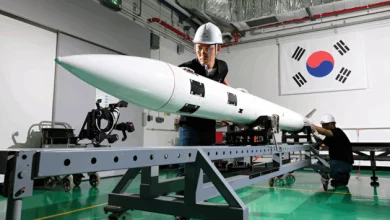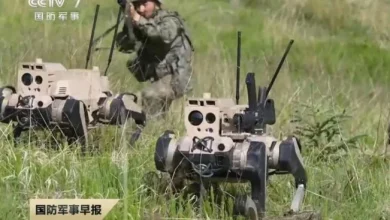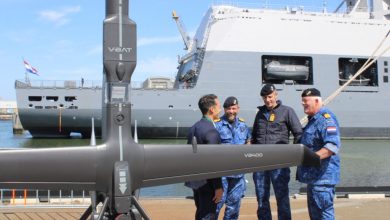Finland and Sweden intercept Russian aircraft over Baltic

NATO’s Combined Air Operation Centre (CAOC) in Uedem, Germany, reported the interception of two Russian fighter aircraft flying over international waters in the Baltic Sea by Finnish and Swedish air operation centres on July 15.
The aircraft, travelling from Kaliningrad to mainland Russia, was not on a flight plan, not in radio contact with civilian air traffic control, and did not use a transponder signal as required under international aviation rules.
Finnish and Swedish quick reaction alert (QRA) forces were launched to intercept the Russian aircraft, highlighting the close integration and cooperation between the two nations and NATO.
The routine mission, ay the Alliance, demonstrated the effectiveness of NATO’s Integrated Air and Missile Defence Systems and the Alliance’s Air Policing arrangements for the Baltic Sea.
“Allied arrangements ensure the integrity of NATO airspace in the Baltic Sea region 24/7 and contribute to the safety of the airspace for all its users,” stated the press release.
Finnish and Swedish Air Forces, now part of NATO, protect the territorial integrity of their airspace and monitor adjacent airspace over the Baltic Sea. Their national Air Operations Centres coordinate closely with NATO’s CAOC to ensure effective fighter control during QRA sorties.
This interception reaffirms the level of integration both Allies have achieved within NATO’s defence structures, ensuring the region’s airspace remains secure and safe for all users.
CAOC
NATO say that the Combined Air Operations Centre at Uedem, Germany is responsible for all Air Policing matters in European NATO Airspace north of the Alps.
This includes control of NATO’s Baltic Air Policing operation, where contributing nations take turns in providing Quick Reaction Alert forces for the three Baltic NATO members Lithuania, Latvia and Estonia; as well as NATO’s periodic Air Policing and Surveillance mission to Iceland.
Under its responsibility falls the coordination and deconfliction of airspace for several annual and recurring live-fly exercises, such as Baltic Operations, conducted in the Baltic Sea and Ramstein Alloy, conducted on a rotational basis in one of the three Baltic States. Repeatedly Uedem’s Command and Control personnel has been involved in coordinating and securing dedicated airspace over and during high visibility events, such as international Football Championships or intergovernmental summits.





